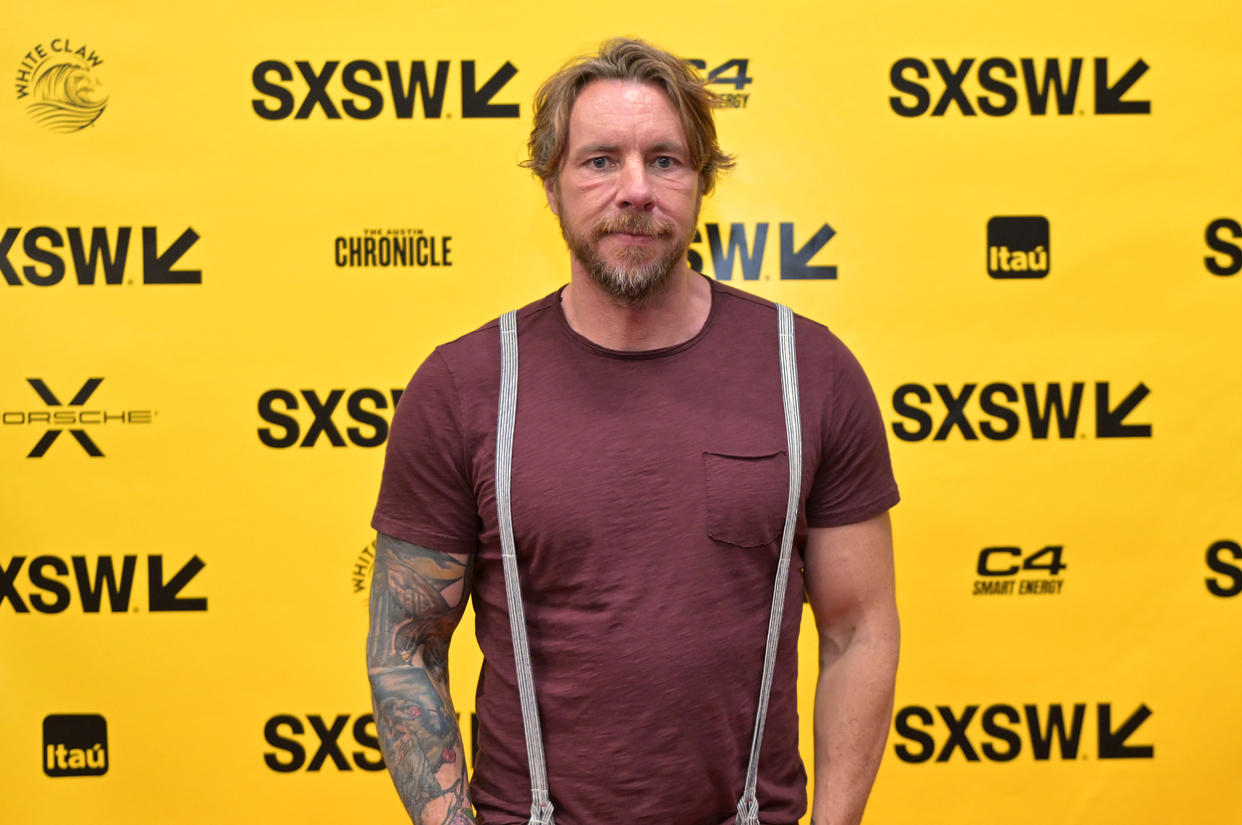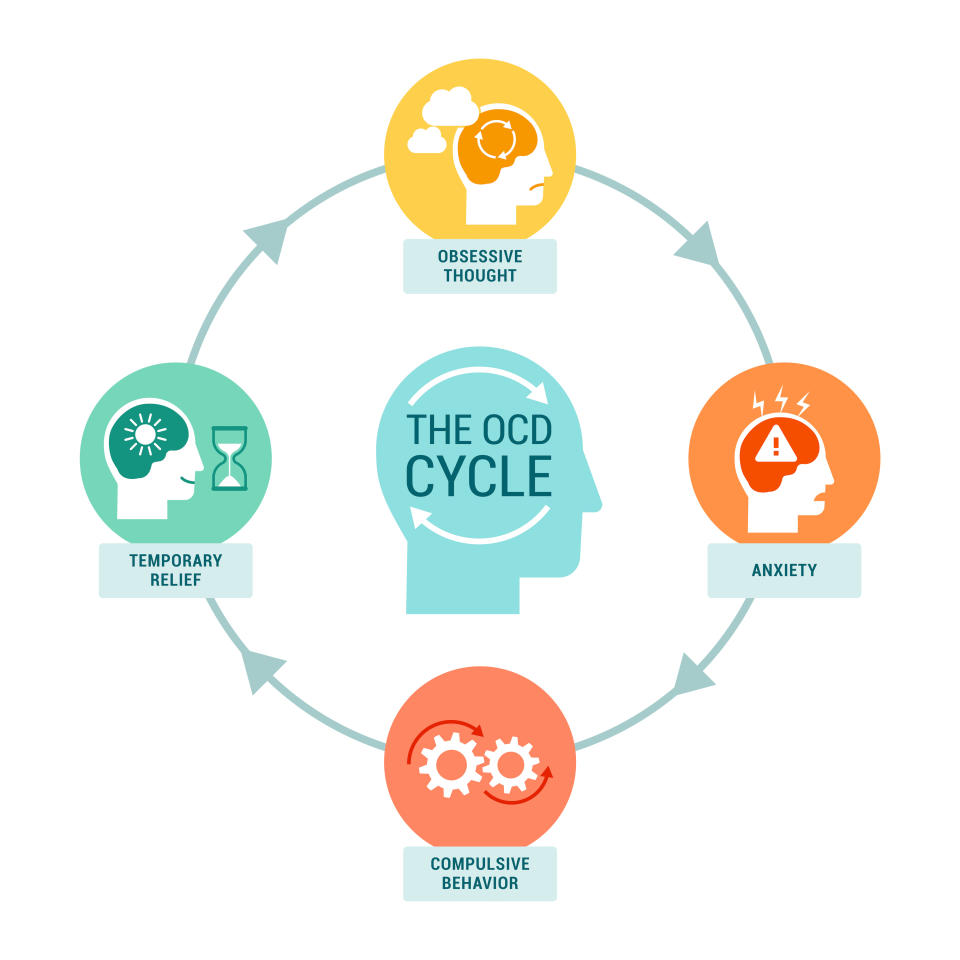Here's Why An OCD Specialist Has Called Dax Shepard's Latest Comments On OCD "Grossly" Misrepresentative

Alright, let's talk about Dax Shepard's latest comments about Obsessive-Compulsive Disorder (OCD).

It all started when Dax, who has previously said that he has OCD and struggled with it as a child, recently had Camila Cabello on his Armchair Expert podcast. Camila has long been candid about having OCD, saying in 2020 that she had been "experiencing what felt like constant, unwavering, relentless anxiety that made day-to-day life painfully hard."

In the interview, Camila talks about having OCD, noting that she instead calls it "obsessionality" with her therapist as she finds the term "disorder" to be triggering. Podcast cohost Monica Padman comments, "You have an obsessive nature," which Dax adds "is a superpower."

"Part of me is like, stop trying to euphemize everything," Dax continued. "It is weird to call OCD a disorder because it's a personality type and it's super beneficial."

Let's get real here: I came across this clip because I have OCD. It was posted by Alegra Kastens, a licensed therapist and the founder of the Center for OCD, Anxiety, and Eating Disorders. "Dax Shepard grossly misrepresented OCD in his interview with Camila Cabello in front of millions of listeners," she began.
"OCD is not a personality type. It is a mental health condition. People tend to misrepresent OCD and say things like, 'Oh, we're all a little bit OCD' because they think that OCD is an adjective to describe being organized, often confusing OCD with obsessive-compulsive personality disorder," she continued.
As for what OCD is, she succinctly explained, "OCD involves obsessions. So repetitive, unwanted, intrusive thoughts and images that are distressing to the person. Things like, 'What if I'm attracted to animals? What if I'm a pedophile? I could snap and hurt someone right now.' Compulsions [are] excessive and time-consuming mental or physical acts performed to alleviate anxiety, get rid of the thoughts, or prevent something bad from happening."

She called OCD "ego-dystonic," which means it is fundamentally at odds with the person experiencing the disorder: "The obsessions and compulsions are opposite to a person's values and self-concept. They are distressing to the person. Imagine having the scariest thing that you could ever think of replaying in your head all day long. How beneficial is that to someone?"
Alegra further mentioned a 2017 Swedish study that suggested those with OCD are 10 times more likely to kill themselves than people without OCD.
In a follow-up call with BuzzFeed, Alegra told me, "Leaving his diagnosis aside, because I don't know what it is that he struggles with, a lot of people confuse OCD with OCPD [Obsessive Compulsive Personality Disorder]. And I think that that is what was happening on the podcast. I can't be certain because I'm not in his head."

"OCPD can also be very distressing for a person or the people around the person. I think even characterizing OCPD as something that's super beneficial would be inaccurate," she continued. "People with OCPD, who might be preoccupied with orderliness, perfectionism, and control, tend to align with that."
As the International OCD Foundation puts it, OCPD is characterized by" Rigid adherence to rules and regulations, an overwhelming need for order, unwillingness to yield or give responsibilities to others, and a sense of righteousness about the way things 'should be done.'"
When asked why Dax's words could be harmful, Alegra replied, "OCD is such a misunderstood condition, so much so that it often takes on average about 10 to 15 years for someone with OCD to get a diagnosis and treatments. And a lot of the misinformation stems from confusing OCD with OCPD."
"It further exacerbates misinformation that keeps people suffering in silence because they can't reconcile, 'Wait, I'm having terrifying intrusive sexual thoughts about my dog' with 'this person is saying that OCD is a personality trait that's beneficial,'" she said.
Indeed, OCD is likely to make the person fear that their intrusive thoughts might be real — such as the aforementioned unwelcome sexual thoughts — meaning that they're less likely to bring it up with another person or call it out as OCD.
"In the episode, Camila says that she doesn't consider it a disorder. I am totally fine with people using language that makes sense for them. But my problem is when language gets put on to other people when it's inaccurate," Alegra continued.

"I'm not saying that Camilla or Dax can't feel whatever way it is about OCD if they have it. But, scientifically speaking, it is just not a beneficial condition."
Personally, Dax's words reminded me of a wonderful personal essay I read in the Cut called "Could I Still Be Ambitious Without My OCD?" In it, the author poses a question I and many others have wondered: What if treating my mental illness makes me less successful? It's a way of thinking that will ultimately cause the OCD to thrive in ways that will ultimately be detrimental.
For me, I try to separate the harmful experiences (such as obsessions about losing my job) from the positive (I am also a passionate person who cares a lot about my work). I can be in OCD recovery and still keep those positive things because I am successful despite mental illness, not because of it.
None of this even gets into how success is defined in terms of capitalism, and I would humbly argue that wealth, accolades, or praise are of little worth if you're tortured inside.
Listen, I was hesitant to cover this as I know that the clip of Dax didn't get much attention beyond some online OCD circles. But, on the off chance that you've clicked on this and either learned something about OCD or felt affirmed, it will have been worth it.

 Yahoo Lifestyle
Yahoo Lifestyle 
